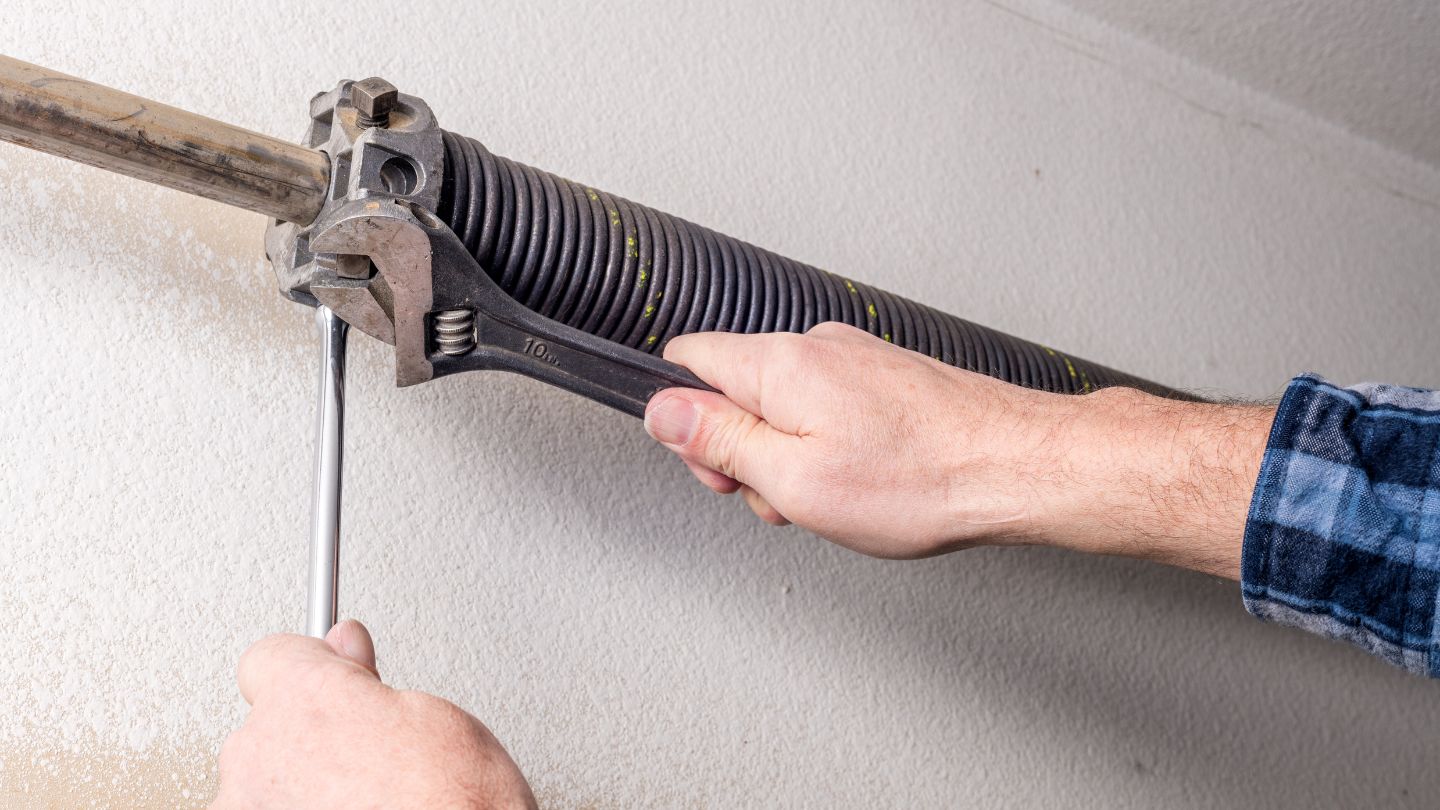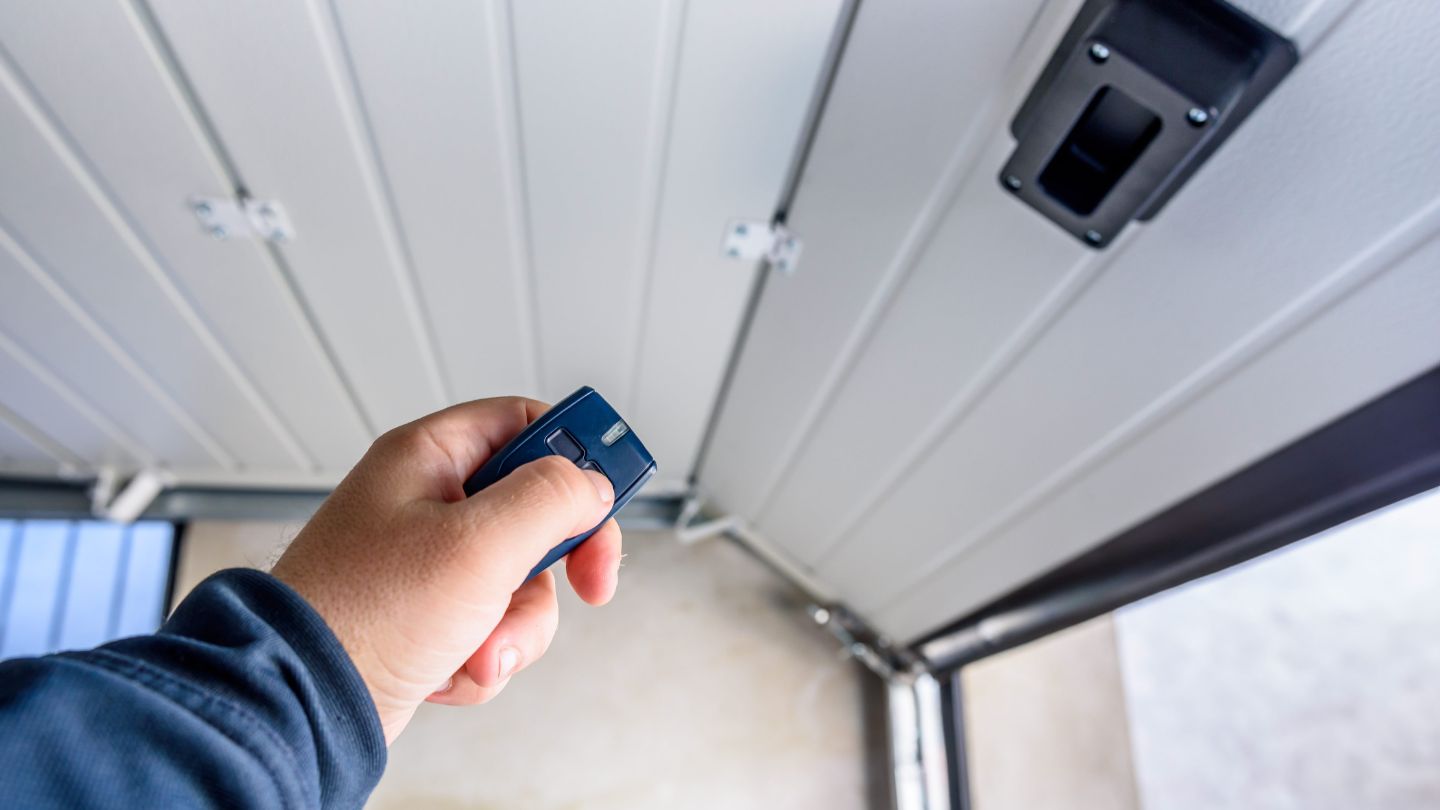
Garage doors are essential for home security and daily convenience, but even the most durable systems encounter problems over time. From noisy operation and faulty sensors to broken springs and opener malfunctions, knowing how to identify and respond to these issues is critical. In this blog on garage door repairs, we break down the most common problems, their root causes, and how to handle them, whether through simple maintenance or professional intervention. Understanding these repair fundamentals can help you prevent costly breakdowns and ensure safe, smooth operation year-round.
Garage doors, although robust, can still encounter problems like malfunctioning openers, worn springs, and misaligned tracks. Various factors, such as power issues, worn-out components, or improper maintenance, often cause these issues, especially when the garage door opens.
Common causes of garage door issues include:
Understanding these causes helps in addressing them effectively.
Misalignment often leads to operational difficulties and safety risks. Loose mounting brackets or track damage can cause the door to become stuck off-track. Slow operation usually results from issues with the rollers or obstructions in the tracks.
Promptly addressing these problems prevents more severe issues like the door moving out of place or slamming shut, often indicating a spring problem. Regular maintenance helps prevent these issues, keeping your door close and functional.
Read more: What to Do When a Garage Door Spring Breaks? Quick Solutions and Safety Tips
A malfunctioning garage door opener can disrupt your daily routine. Begin troubleshooting by:
If the motor runs but the door doesn’t move, stripped gears might be the cause. A malfunctioning remote control often stems from dead batteries or signal interference. To troubleshoot remote issues:
If the garage door opener still doesn’t function correctly despite your efforts, it’s time to contact a garage door professional. They can inspect for loose connections or damaged components and make necessary repairs to restore functionality.
Read more: What Size Garage Door Opener Do I Need? A Quick Guide to Choosing
Safety sensors are crucial for any garage door system. These photo eye sensors stop the door if something is in its path, preventing accidents. Misaligned or obstructed sensors can cause malfunctions.
To maintain safety sensors:
Maintaining these safety features ensures security and prevents potential hazards for safety reasons. Regular checks and cleanings keep sensors functioning correctly, ensuring safe operation.

Rollers and garage door tracks are vital for smooth garage door operation. Old or rusted rollers can hinder functionality, and debris in the track can impede movement, causing slow or uneven operation.
To maintain the tracks and door rollers:
If cleaning and lubricating don’t resolve the issues, call a professional technician. Complex mechanical faults or severely damaged tracks need professional expertise. Regular maintenance, including inspecting and replacing worn rollers, can prevent these problems and avoid costly repairs.
Broken springs significantly impact functionality. Signs include difficulty opening the door and visible wear or separation in the springs. Broken springs can cause the door to close abruptly, creating safety hazards.
Due to the high tension, attempting to replace garage door springs while replacing worn-out springs without professional help can cause serious injury. Contact a qualified technician for safe inspection and replacement.
Functioning springs are crucial for the door’s movement and overall safety.

Regular maintenance ensures smooth operation and longevity. Lubricate moving parts like hinges, rollers, and springs to prevent issues, as outlined in the owner’s manual. Basic tasks include tightening hardware and inspecting cables for wear.
Annual comprehensive maintenance checks keep your garage door in optimal condition. Regular lubrication prevents major problems and costly repairs. Consistent checks extend the door’s lifespan and ensure quiet operation.
Knowing how regular maintenance from a garage door professional can extend its life underscores the importance of preventive care. Routine inspections and adjustments reduce wear and prevent costly breakdowns over time.
Unusual noises often signal underlying issues, indicating worn or loose components, a lack of lubrication, or misalignment. Identifying specific noises helps diagnose problems effectively.
Noisy doors usually stem from worn components or inadequate lubrication. Popping noises often indicate issues with torsion springs needing prompt attention. Banging noises might signal an imbalanced door or loose hardware.
To maintain quiet and efficient operation:
Smooth operation is crucial for convenience and safety. Check the balance by manually lifting the door halfway; it should stay in place, indicating proper spring constant tension. This test confirms functionality and allows the door to close smoothly while working correctly to ensure smooth operation.
Adjust limit switches to ensure the door opens and closes fully without obstruction. Test the auto-reverse feature to prevent accidents by stopping the door if it detects an obstruction. These adjustments ensure smooth and safe operation.
If you’re wondering how long garage door openers last, tips to extend their lifespan, the answer lies in consistent upkeep. Lubrication, sensor checks, and timely service help maximize longevity and avoid early replacement.

For complex issues, hiring a professional technician is often best. If cleaning and lubrication don’t resolve a lock issue, call a professional. They can ensure proper lubrication and avoid potential damage.
Professionals should handle larger adjustments or necessary repairs to ensure safety and long-term functionality. Replacing critical parts yourself can be risky due to significant tension and may lead to further damage. A professional service technician provides the expertise needed for safe repairs. Critical parts should be replaced by a professional to avoid potential hazards
Proper ways to weatherproof a garage door include sealing gaps, insulating panels, and applying weatherstripping. These upgrades protect against moisture, drafts, and extreme temperatures, enhancing comfort and energy efficiency year-round.
For spring or cable adjustments and resolving persistent noise issues, professional services save time and prevent costly repairs. Their expertise ensures smooth and safe operation.
Understanding the benefits of using a commercial garage door repair service helps businesses reduce downtime, improve security, and extend the lifespan of critical overhead systems with expert maintenance and code-compliant repairs.
Read more: Commercial Garage Door Guide: Types, Selection & Size Guide
Preventive maintenance ensures smooth and safe operation. Perform maintenance at least twice a year to keep your garage door in top condition. Common tasks include lubricating moving parts, tightening hardware, and inspecting cables.
Regular maintenance:
Following these tips ensures your garage door remains functional and safe. Regular maintenance extends its life and enhances performance and reliability.
Understanding the most common garage door issues, such as opener malfunctions, sensor failures, spring damage, and track misalignment, can help homeowners identify problems early and prevent costly, unsafe breakdowns. Regular maintenance, like lubrication, part inspection, and noise monitoring, ensures long-term functionality and safety while keeping the system running efficiently.
For professional garage door repair in Dayton that the homeowners can trust, Dayton Door Sales delivers expert service for installation, repair, and maintenance. Their experienced technicians ensure your garage door remains secure, smooth, and fully operational with precision workmanship and dependable support.
The most common issues include broken springs, misaligned tracks, malfunctioning openers, worn rollers, and faulty safety sensors. Regular inspections help detect these problems early before they lead to major repairs.
While basic maintenance like lubrication or sensor cleaning is safe for homeowners, complex repairs, especially involving springs or cables, should always be handled by professionals due to safety risks.
You should schedule professional maintenance at least once a year. However, performing simple checks and lubrication every six months helps prevent wear and keeps the system running smoothly.
Unusual noises may indicate worn rollers, loose hardware, or a lack of lubrication. Grinding or popping sounds could also signal spring or track issues requiring professional inspection.
Use a silicone-based or lithium-based spray lubricant designed for garage doors. Avoid grease or oil-based products, as they attract dust and can clog moving parts.